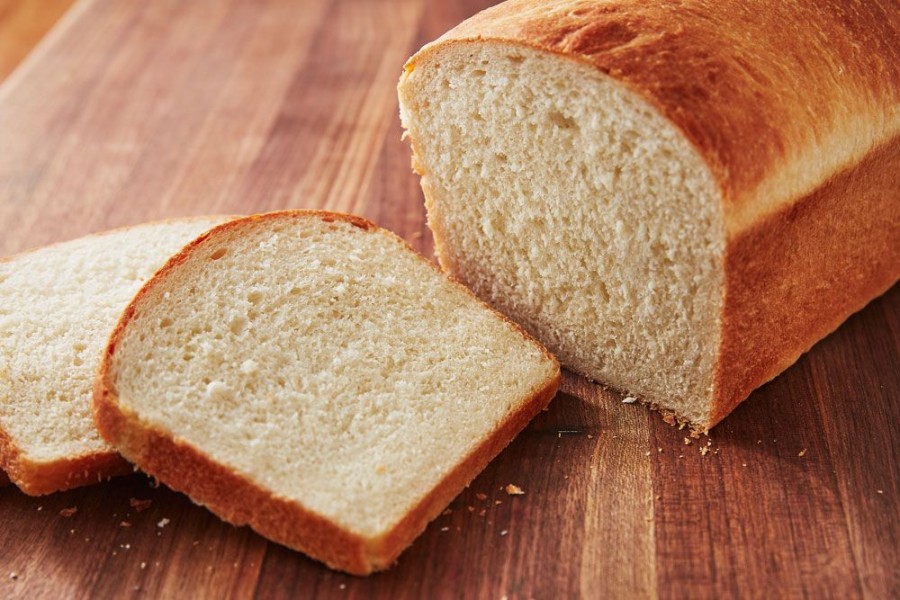The prices of wheat flour have increased by Tk 2.0-Tk 3.0 per kilogram in the domestic market hitting people's pockets, according to trading sources.
However, traders have attributed the hike to a rise in the price of wheat in the international market.
The prices of bread and some other bakery items also went up due to the hike in wheat, sugar and edible oil prices, said insiders.
Coarse flour (atta) and finer flour (maida) prices increased by Tk 2.0-Tk 3.0 a kg or 8.0-10 per cent in a week, according to market sources.
Loose atta was sold at Tk 31-Tk 32 a kg, packet attaat Tk 38, loose maidaat Tk 38-Tk 40 a kg and packet maida at Tk 46-48 a kg on Sunday.

Nurul Huda, an official at Bashundhara Food and Beverage, said a surge in global wheat prices has forced millers to review the price to some extent.
He said wheat prices have been rising since October last year.
Global trade web-portals Index Mundi and 'Business insider' data showed that wheat was trading at US$220-$260 a tonne in different continents in the world based on quality.
Reports of the portals said squeeze in export by leading exporter Russia has caused the surge by 10-11 per cent in last three months despite having good harvest in many regions.
However, pricier wheat, sugar and edible oil also caused a surge in bakery items in Bangladesh.
The price of bread, locally known as 'paaruti,' increased by 12-14 per cent in Dhaka city from January 23.
Price of a medium sized (350 gramme/gm) bread has increased to Tk 35-Tk 40 from Tk 30-Tk 35, same sized milked-bread to Tk 45-Tk 50 from Tk 40-Tk 45, big sized (650 gm) to Tk 65-75 from Tk 55-Tk 65 depending on city areas, said grocers and bakeries.
Md Haider Ali, a grocer at East Rayer Bazar in the city, said local bakeries stopped supplying bread and biscuits from January 21 evening which continued for next 24 hours.
And they started providing bread, biscuits and cakes at increased rates from January 23, he said.
Shahjalal Hossain, one of the proprietors of Rayer Bazar-based Shahnewaj Bakery, said manual bakeries have raised prices amid surge in wheat flour, sugar and edible oil prices.
He said prices of per kg wheat flour showed a Tk 2.0-3.0 hike just in a month.
Many of the bakeries have also raised prices of biscuits, cakes, muffins by Tk 30-50 a kg following the surge in raw material prices.
Prices of common biscuits, especially sold at roadside tea-stalls, have increased by Tk 30 a kg, said shop owners.
Rafiq Dewan, a roadside tea-stall owner in front of Tejgaon College in the city, said he bought common cookies at Tk 170 a kg on Sunday which was Tk 140-150 two days back.
A packet of ten pieces of cake increased to Tk 80 from Tk 65-70 earlier.
He said many of the bakeries didn't raise biscuit and cake prices rather minimised the volume of a product.
Contacted, president of Bangladesh Auto Biscuit and Bread Manufacturers Association (BABBMA) Md Shafiqur Rahman Bhuiyan said manual bakery operators have raised prices.
He said the members of his association are yet to review it.
"We are also going to submit a proposal to the government to review prices following a surge in wheat, sugar and oil prices," he added.
According to Trading Corporation of Bangladesh (TCB), prices of edible oil and sugar are now 26-30 per cent and 7.0-9.0 per cent higher than that of a year ago.
Consumers Association of Bangladesh (CAB) secretary Humayun Kabir Bhuiyan said surge in flour prices has added to woes of the commoners.
Both home-made bread (ruti, parata) and paaruti are now popular breakfast and snack items and meet a good portion of food demand, he said, adding that poor people will be hit hard by the surge in flour and bakery item prices.
He said market monitoring should be stepped up to prevent any artificial hike.
Mr Bhuiyan also said import duty on edible oil and sugar should be reviewed immediately to help commoners.
According to the Bangladesh Agro Processors' Association (BAPA) and BABBMA, the country consumes 7.0 million tonnes of wheat of which bakery and confectionery comprise 2.0 million tonnes.
The demand for wheat-made food items has been rising by 10-15 per cent year-on-year basis.
Meanwhile, a joint meeting between the government and traders concerned on Sunday decided to sit with stakeholders soon to find a solution to soaring edible oil prices in the market.
"Very soon, we will hold a meeting with stakeholders concerned including Bangladesh Trade and Tariff Commission and edible oil traders to find a way out of rising prices of the widely-consumed item," commerce minister Tipu Munshi told reporters after a review meeting on recent prices of essentials with the country's edible oil traders at his secretariat office.
In the meeting, no assurance was given to bring down the prices of edible oil in the domestic market, a source said.
The commerce minister said around 90 percent of edible oil has to be imported into the country. Price hike in the international market puts an impact on the domestic market.
He mentioned that per tonne of edible oil was US$ 700 in the global market in July last. It is now over US$ 1,100/1,190.For this, the prices of the item have increased by more than 75 percent in the kitchen market. The global rising trend has also affected the local edible market.
The prices of edible will be fixed every month, if necessary. The commerce ministry is now working on the issue, Mr Munshi said.
In the meeting, traders of edible oil demanded imposition of single-stage VAT and tariff on edible oil instead of the existing structure.
Commerce secretary MdJafar Uddin, senior officials of the ministry and representatives from trade bodies attended the meeting.


